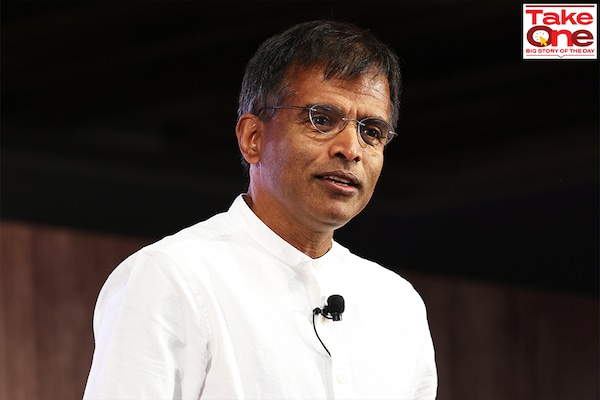I don't see Zomato's value dramatically shifting from Rs 35 per share: Aswath Da
The dean of valuation on why he doesn't see the food delivery company's fair value materially change and how 'numbers' flow from the 'story' in investing


After sinking close to 60 percent since listing, over the past three months, Zomato’s stock price has been going up, and it hit a 52-week high of Rs 105 per share on Monday. The food delivery company reported a first-ever net profit in 15-years of Rs 2 crore in the previous quarter. In the last few months, several global brokerages have revised their rating to ‘buy’ and ‘outperform’. Some analysts, to explain the renewed confidence, point out that Zomato has a long runway for customer acquisition and revenue growth.
But how has the narrative shifted? And does it materially alter the value of the business?
Valuation guru Aswath Damodaran valued Zomato at Rs 35 apiece in July 2022 and he doesn’t see the value dramatically shifting. To explain why, in part-3 of a multi-part series, Damodaran, professor of finance, NYU Stern School of Business, underlines the importance of blending stories with numbers when valuing a company. Edited excerpts from the interview on Forbes India Pathbreakers in August:
I haven"t revisited the valuation. I think they"ve done some things better, some things worse, but I think the price is going to go up and down till you get to some steady state here. It remains predominantly a restaurant food delivery business. I don"t think the facts on the ground have changed that much. If there"s a tilt in the value, it"s got to come from risk premiums changing, maybe a higher base number. I don"t see the value dramatically shifting, even though I haven"t done the full-fledged valuation, because I don"t see a shift in the story.
And that"s, I think, the key. Unless the story shifts, your value is not going to change dramatically. What could cause my story to shift? Well, if Zomato shows evidence that it can actually make money on grocery deliveries, that"s a huge business. Then I"d be inclined to go back and revisit my story and valuation. I"m not stuck on my story and valuation. One of the biggest dangers in investing is falling in love with your own story for a company. In which case, you refuse to look at the data because the data might contradict your story.
So, if we go back and look at my Zomato valuation, you can agree with it or disagree with it. It"s not about what I"m using as revenue growth and margins that"s giving me the value. It"s my story of Zomato as a restaurant food delivery business that"s going to feed off the growth of that business in an immense market like India. That"s the story that"s driving it. Now you could tell a different story about Zomato. You might say, look, it"s not a restaurant food delivery business, it is a grocery delivery business in addition. That changes the story, it changes your inputs. Will it make the value higher? Maybe it will, maybe it will not, but it"s a different story. I tell people, look, when you build a spreadsheet, think about the underlying story you"re telling, because even if you say I have no story, your numbers convey a story and you"ve got to believe in that story.
For young companies to make it, lots of pieces have to fall into place. So, when people accuse me, when I valued Zomato, of being too pessimistic, what I think they"re missing is how many things have to work out for a young company to become a large successful company. I mean, I was awfully wrong on Paytm. And you can see what happens when you tell a story, and the management is incapable of delivering on that story, what can happen to your value. Only a few of these companies will come out of the other end as superstars, these 10 baggers or 100 baggers that become legendary investments.
A day later, the food delivery platform listed close to 50 percent above its price band of Rs 72 to Rs 76 at Rs 115 per share. But within six months, it shed its listing gains. A year later, in July 2022, it sunk to around Rs 41 per share and traded below its IPO price for most of last year. In fact, Damodaran, in July 2022, based on a revised evaluation, slashed the company’s value per share to Rs 35.
First Published: Sep 22, 2023, 10:46
Subscribe Now